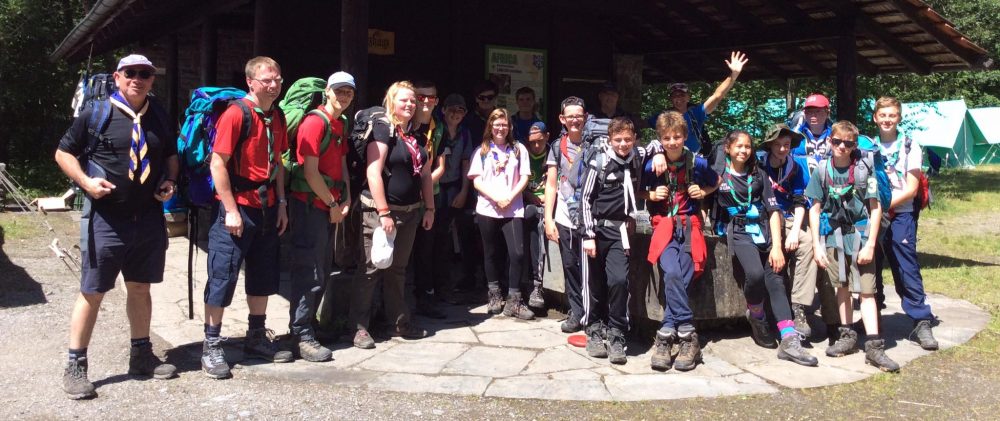UK Scouting offers fun, challenge and everyday adventure to 465,000 young people and over 150,000 adult volunteers across the UK.
Outdoor activities include everything from abseiling and archery to volleyball and zorbing. Adventure and nights away from home are a big part of Scouting but so are the numerous activities that take place each week inside the Scout Hut. Scouting helps 6-25 year olds grow in confidence and achieve their full potential.
Beaver Scouts: 6 – 8yrs
Beaver Scouts are boys and girls, aged six and seven years old. They belong to the first and youngest section in the Scouting family. Young people can join Beaver Scouts in the three months leading up to their sixth birthday. They usually move to the next section, Cub Scouts, at the start of the term following their eighth birthday.
Easily recognised by their distinctive turquoise sweatshirts, Beaver Scouts enjoy making friends, playing games, going on visits and helping others. They meet together once a week in a Beaver Scout Colony which is usually made up of groups called Lodges, often named after some aspect of nature. Beavers work towards badges and can gain their Bronze Chief Scout Award if they enjoy this aspect of Scouting.
Cub Scouts: 8 – 10.5yrs
Cub Scouts are boys and girls, aged between eight and ten and a half years old. They usually move to the next section, Scouts, at the start of the term after they become ten and a half.
A group of Cubs is known as a Pack and each Pack is made up of groups called sixes, usually based on colours. The leaders are named after characters from “The Jungle Book”. Cubs wear dark green sweatshirts, polo shirts and navy blue trousers along with their group scarf.
Cub Scouts also get to do lots of fun activities, many of which lead to badges. They can earn their Silver Chief Scout Award if they work hard to achieve their badges. Cubs go on trips, weekend camps and do loads of outdoor activities.
Scouts: 10.5 – 14yrs
Scouts are boys and girls, aged between ten and a half and fourteen years old. They usually move to the next section, Explorer Scouts at the start of the term after they become fourteen.
A group of Scouts is known as a Troop and each Troop is made up of groups called patrols, usually based on wild animals. The leaders are known by their first names. Scouts wear teal coloured shirts and navy blue trousers along with their group scarf.
Scouts are encouraged to take part in a wide range of activities as part of their programme. “Participation” rather than meeting set standards is the key approach and for the Scout who wants to be recognised for his or her achievements there are a number of Challenges Awards and Activity Badges. They can earn their Gold Chief Scout Award if they work really hard.
Scouts take part in a balanced programme that helps them to find out about the world in which they live, encourages them to know their own abilities and the importance of keeping fit and helps develop their creative talents. It also provides opportunities to explore their own values and personal attitudes.
Being outdoors is important and at least half the programme is given over to taking part in both the traditional Scouting skills, such as camping, survival and cooking as well as the wide range of adventurous activities, anything from abseiling to yachting.
Explorer Scouts: 14 – 18yrs
Explorers are young people between fourteen and eighteen years old. At eighteen they can move on to Scout Network which caters for 18-25 year olds and many become adult leaders.
A group of Explorer Scouts is known as a Unit and Explorers wear beige coloured shirts and navy blue trousers along with their district scarf. The leaders are known by their first names.
With the support, direction and guidance of Unit leaders, Explorer Scouts are encouraged to lead themselves, design their own programme and work towards the top awards that Scouting offers which are the Chief Scout Platinum and Diamond Awards. With exciting prospects like being a part of camps and expeditions both home and abroad; adventurous activities such as mountaineering, caving and sailing; Explorers offers fun and adventure for all. Explorers also have the opportunity to be a part of The Young Leaders Scheme which develops their leadership skills and sense of responsibility, by helping to run meetings for younger sections.
